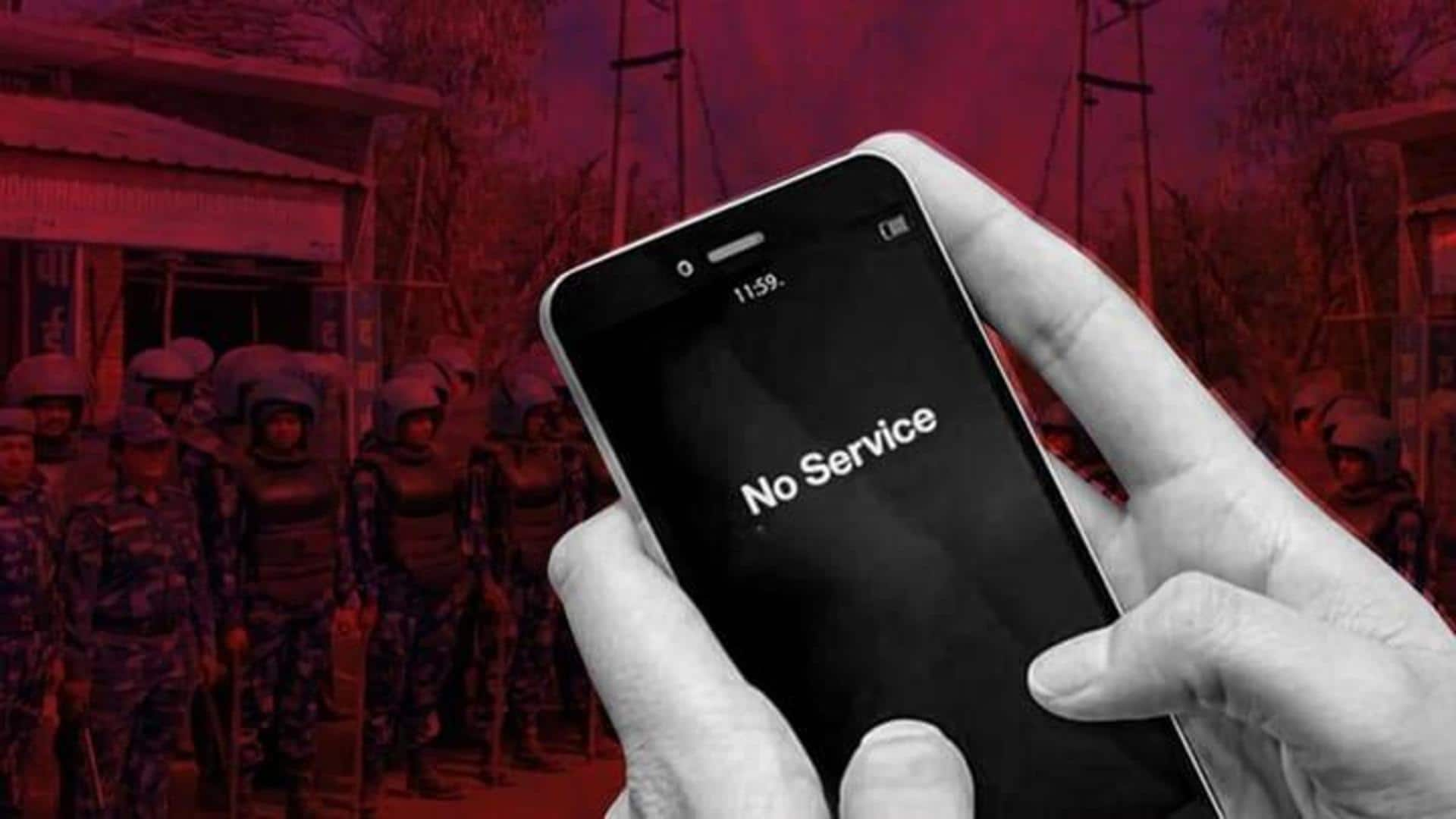
Most internet shutdowns in India imposed to prevent protests: Report
What's the story
In the last three years, local authorities in India used 54 of the 127 internet shutdowns to prevent or respond to protests, according to the latest report by Human Rights Watch and Internet Freedom Foundation. The report further stated that between January 2020 and December 31, 2022, 18 of 28 Indian states shut down the internet at least once.
Details
Report doesn't include internet shutdowns in J&K
As per the report, out of the 127 internet shutdowns, 37 were to prevent cheating in school examinations or in exams for government jobs, 18 were in response to communal violence, and 18 were for other law and order concerns. However, it stated that the number did not include internet shutdowns in the union territory of Jammu and Kashmir, which faces the maximum shutdowns.
More details
11 states didn't issue internet suspension orders: Report
It also found that 11 out of 18 states that shut down internet didn't issue suspension orders as directed by the Supreme Court. Rajasthan, Uttar Pradesh, West Bengal, Maharashtra, Jharkhand, Manipur, Andhra Pradesh, and Manipur are among them. These findings were disclosed in the report "No Internet Means No Work, No Pay, No Food: Internet Shutdowns Deny Access to Basic Rights in 'Digital India.'"
More information
Rajasthan shut down internet 85 times in 3 years
Furthermore, the report claimed that Rajasthan topped the list with 85 internet shutdowns. Out of 85, 44 shutdowns were to prevent protests or in response to them, at least 28 were to prevent cheating in examinations, nine were to prevent communal violence or in response to it, and four were to address other law and order concerns.
Drawbacks
Citizens face difficulties due to internet shutdowns, says report
Lastly, the report notes that 96% of subscribers in India use mobile phones to access the internet. "Internet shutdowns make it much harder for rural communities to conduct basic banking, pay bills, and access...documents," it said. It added that India, along with the G7 nations and four other countries, signed a statement last year to ensure "a free, global, interoperable, reliable, and secure internet."